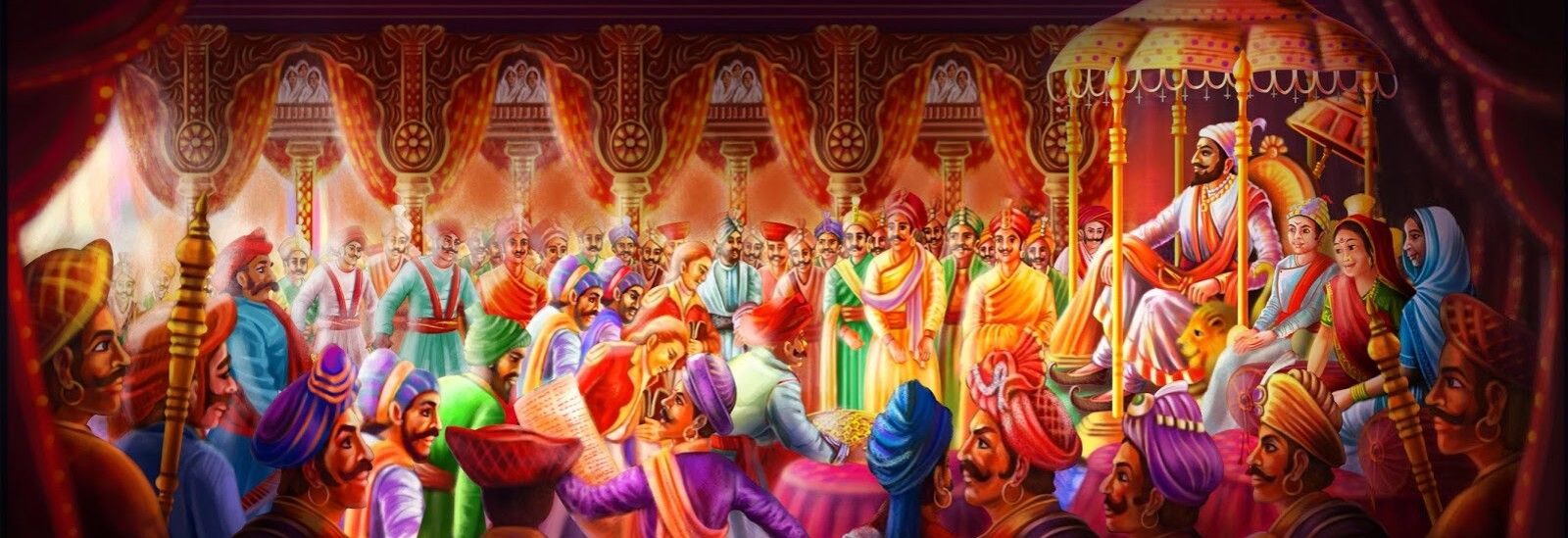Continue reading from Part I
Kautilya means Chanakya
Kautilya says,
‘प्रजेचे इहलौकिक व परलौकिक कल्याण साधने, हे राजाचे परम कर्तव्य आहे. शांतता ठेवणे, परकीय आक्रमणापासून वाचविणे, ही कामे केली, म्हणजे राजाचे कर्तव्य संपले असे होत नाही. तर अधून-मधून दुष्काळ येतात, नापिकीही होते. अशा संकटांवर मात करण्याकरीता राजाने धान्यकोठारे सदैव भरून ठेवावीत. उदाहरणार्थ, संकटाच्या वेळी व्यापारी भाव पाडून शेतक-यांकडून धान्य विकत घेऊन शेतक-यांचे नुकसान करतात. तसेच शेतक-यांच्या जवळील धान्य संपले, म्हणजे भाव वाढवून तेच धान्य जनतेला विकतात आणि जनतेचे नुकसान करतात. त्यामुळे जेव्हा पिके येतात, तेव्हा राजाने धान्य योग्य किंमतीत विकत घ्यावे आणि संकटाच्या वेळी धान्य योग्य किंमतीत विक्रीस काढून जनतेचे रक्षण करावे. यामुळे एकीकडे प्रजारक्षण होते. दुसरीकडे सरकारी कोठारांतील धान्य नवे राहते. धान्य म्हणजे रत्न नव्हे. ती कुजतात, म्हणून सदैव जुने धान्य विकणे, नवे खरेदी करणे, हे काम चालू ठेवावे. त्यामुळे भाव आटोक्यात राहतात व प्रजारक्षण होते. मापे, वजने नेहमी पारखावी. कारण तेथेही व्यापारी फसवतात. व्याज किती घ्यावे, यावर नियंत्रण असावे. सावकारीला परवाना व कर असावा. माणसे व पशू यांना औषध देण्याचे काम जसे पुण्यांचे आहे तसेच ते राजावर श्रध्दा बसण्यास उपयोगी व जनहिताचे ही आहे. दुष्काळात प्रजेला अन्न पुरवून वाचविणे, त्यानंतर बी, बैल, नांगर पुरविणे व त्याचा खर्च हप्त्याने वसूल करणे हे राजाचे काम आहे. चोरी पकडणे इतकेच राजाचे काम नाही. तर त्याने प्रजेस नुकसान भरपाई मिळवून दिली पाहिजे. प्रत्येक धंद्यावर कर असावा. कर एकदाच घ्यावा. त्याचे प्रमाण कायम (कौटिल्याच्या मते उत्पन्नाचा 1/4 भाग) असावे व तो उत्पन्न कमी झाल्यास कमी व्हावा, रस्ते बांधणे, तळी दुरूस्त करणे, विहिरी पाडणे, कालवे खोदणे, नवे नवे कारखाने, उद्योगधंदे उभारण्यास मदत देणे हे राजाचे काम आहे. शिक्षा कठोर असल्या, म्हणजे गुन्ह्याचे प्रमाण कमी होते असे नाही. तर प्रत्येकाचा गुन्हा लपणार नाही, शिक्षा चुकणार नाही, याची खात्री असली, म्हणजे गुन्हे कमी होतात. अशी प्रजेची सर्वांगिण काळजी घेणे हे राजाचे काम आहे. हे जर राजा करीत नसेल, तर कर नाकारणे, राजाला हकलून देणे, त्याचा वध करणे हा प्रजेचा हक्क आहे. नव्हे, ते तर प्रजेचे कर्तव्यचं आहे.’
Translation:
‘It is the supreme duty of the king to provide for the welfare of his citizens. To keep peace, to protect against foreign invasion, did not mean that the king’s duty was over. There are occasional droughts and barrenness. To overcome such crises, the king should always keep the granaries full. For example, during times of crisis, traders buy grain from farmers at a low price to the detriment of farmers. Also, the grains near the farmers run out, which means they sell the same grains to the public by increasing the price and causing loss to the public. So when the crops come, the king should buy grain at the right price and protect the people by selling the grain at the right price in times of crisis. This leads to public protection on the one hand. On the other hand, grain in government warehouses remains fresh. A grain is not a gem. They rot, so always sell old grains and buy new ones. Therefore, the prices remain under control and the public is protected. Always check measurements and weights. Because even there traders cheat. How much interest should be taken should be controlled. A moneylender should be licensed and taxed. Just as the work of giving medicine to humans and animals is a virtue, it is also useful for putting faith in the king and is of public interest. It is the king’s job to save the subjects by providing food during drought, then providing seeds, bullocks, plows and recovering their expenses in installments. Catching theft is not the only job of a king. So he should get victim compensation. Every business should be taxed. Tax should be taken only once. Its amount should be constant (1/4th of the income according to Kautilya) and it should be reduced if the income decreases, it is the king’s job to build roads, repair ponds, dig wells, dig canals, help in setting up new factories, industries. Harsh punishment does not necessarily mean that crime rate decreases. So if it is ensured that everyone’s crime will not be hidden, punishment will not be missed, then crimes will be reduced. It is the king’s job to take care of such citizens. If the king does not do this, then it is the right of the citizens to refuse taxes, to overthrow the king, to kill him. It is the duty of the people.’
Continue reading with Part III
or goto Part IV


Pingback: Qualities of Ideal King (Part III) – Chatrappati Blogging
Pingback: Qualities of Ideal King (Part I – Introduction) – Chatrappati Blogging
Pingback: Qualities of Ideal King (Part IV – Blogger’s Words) – Chatrappati Blogging